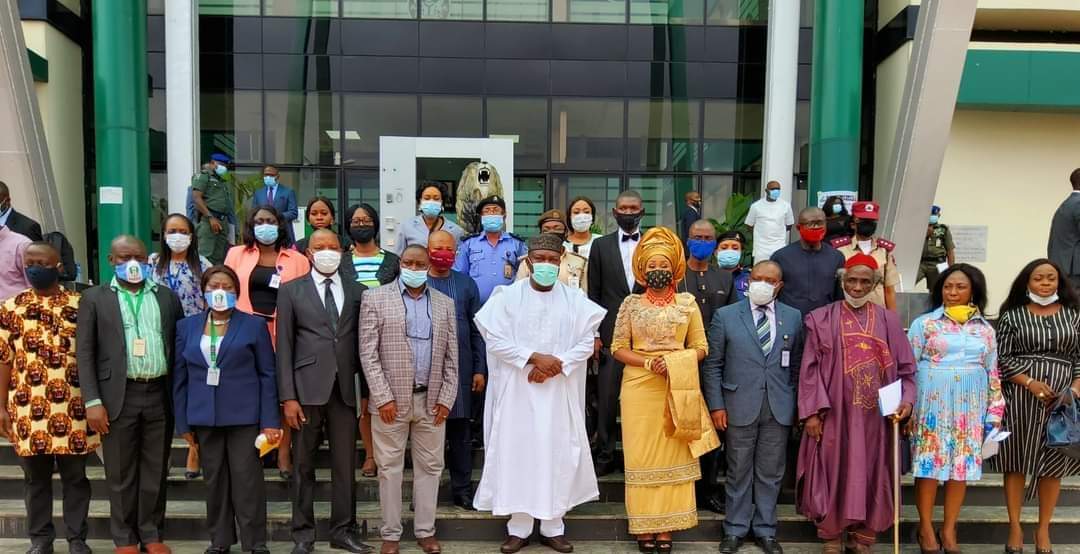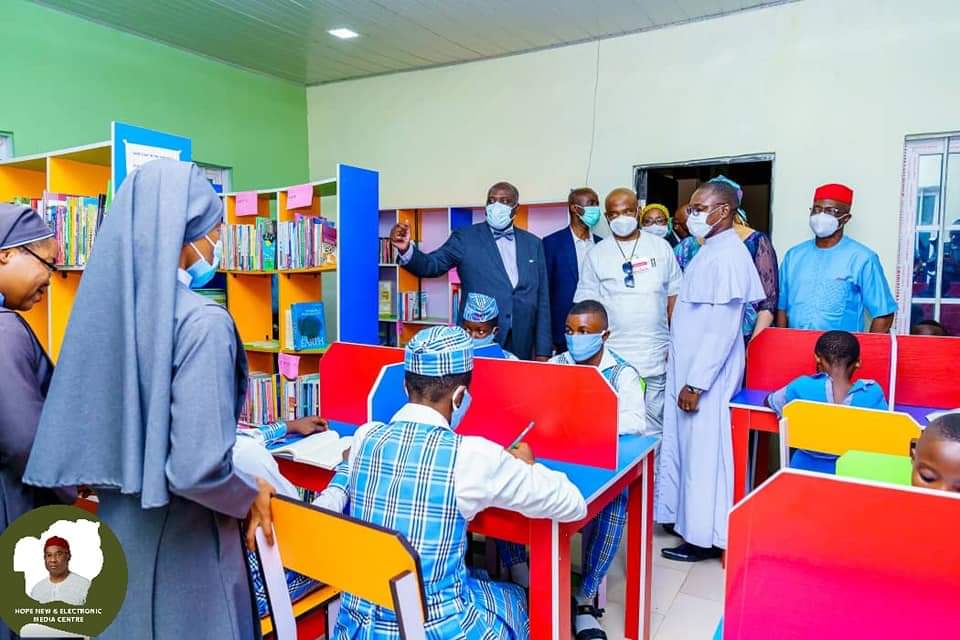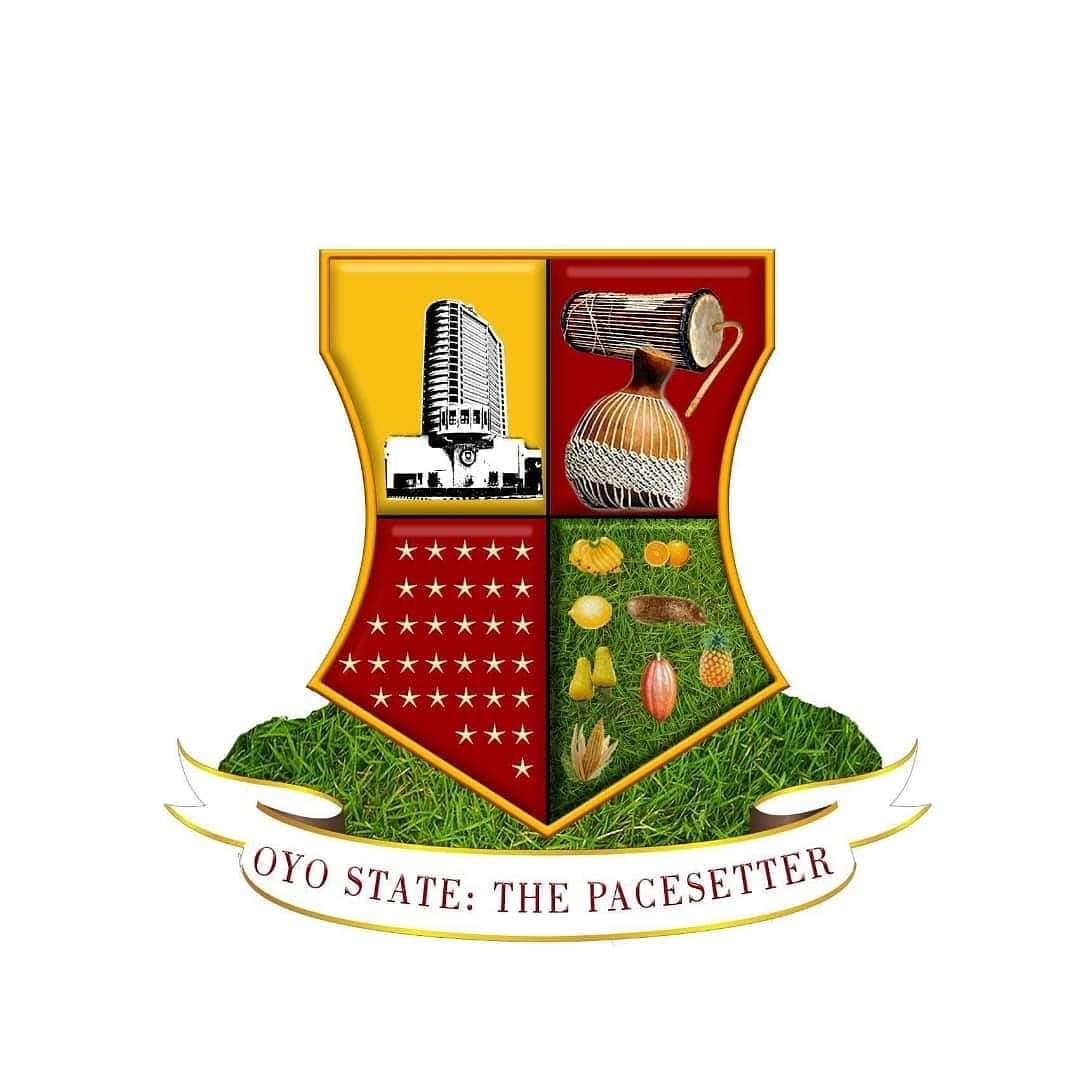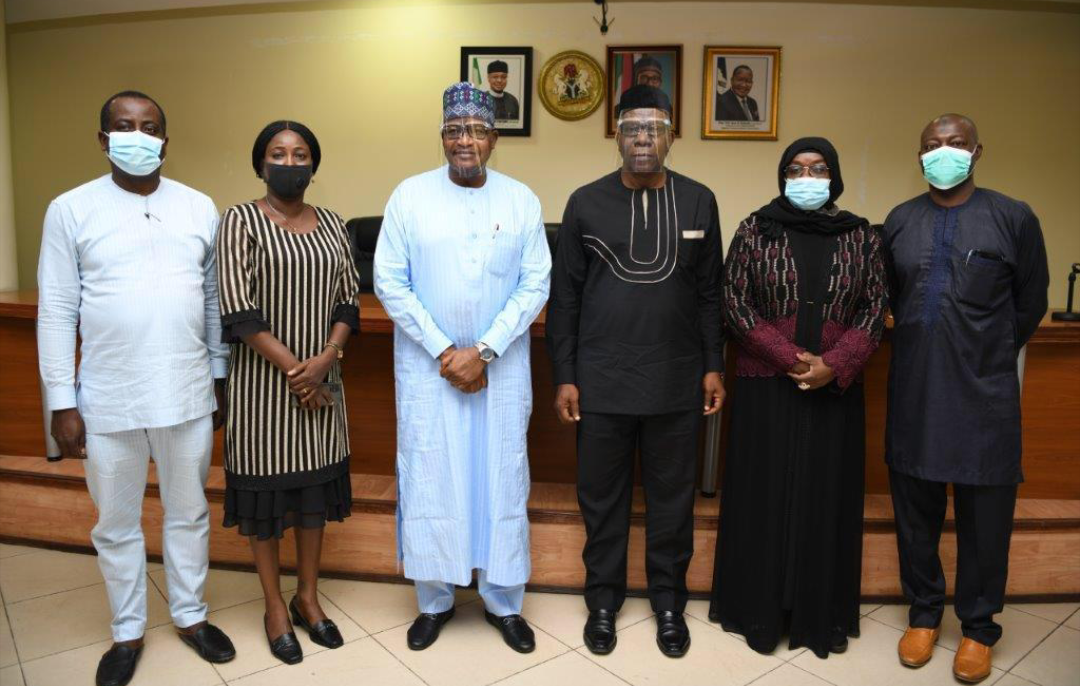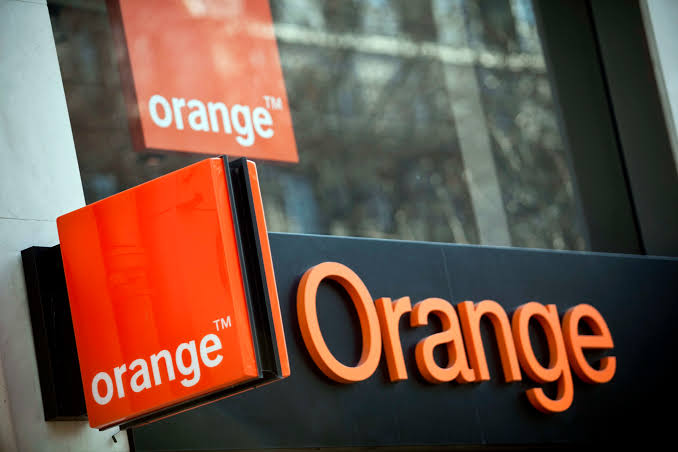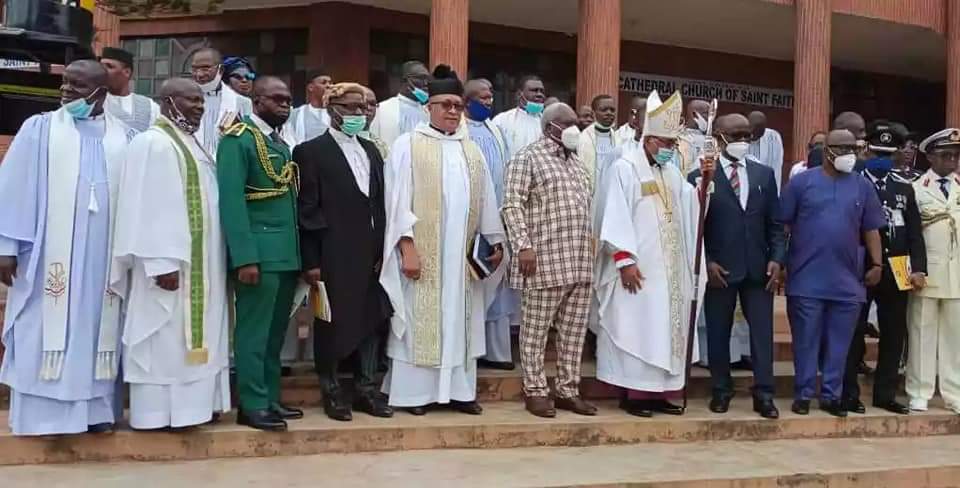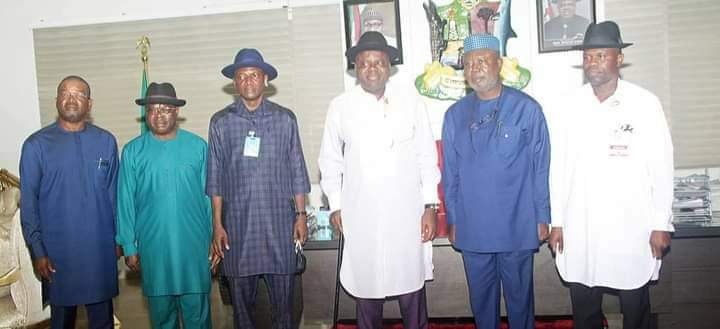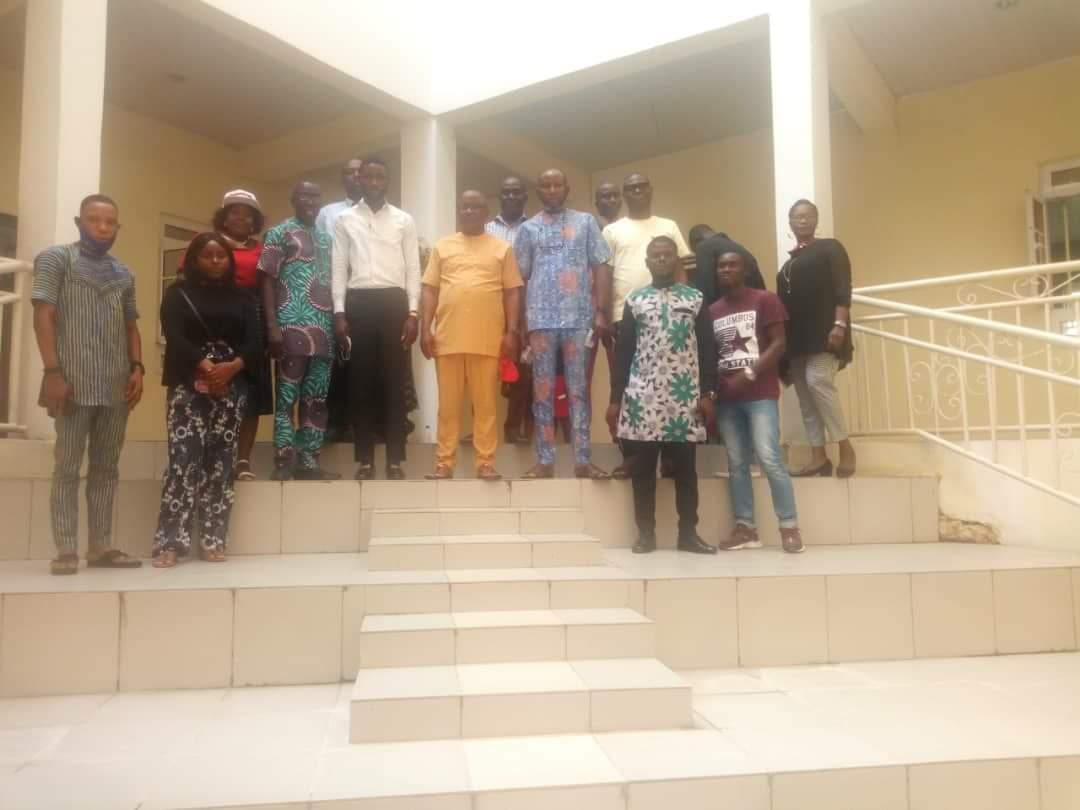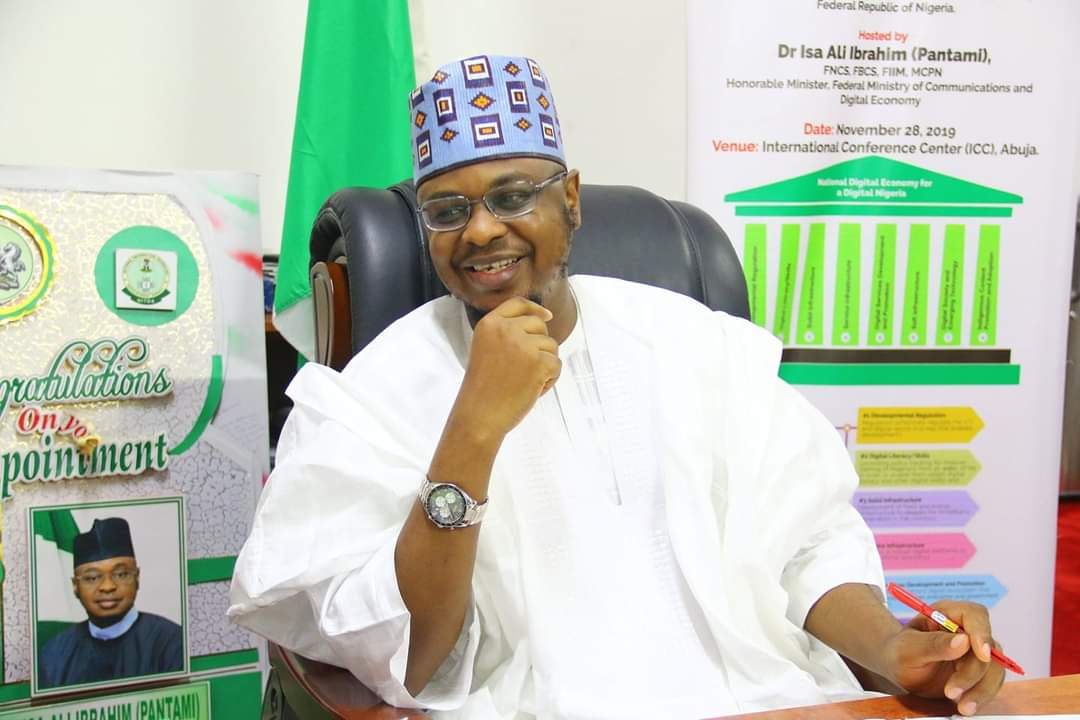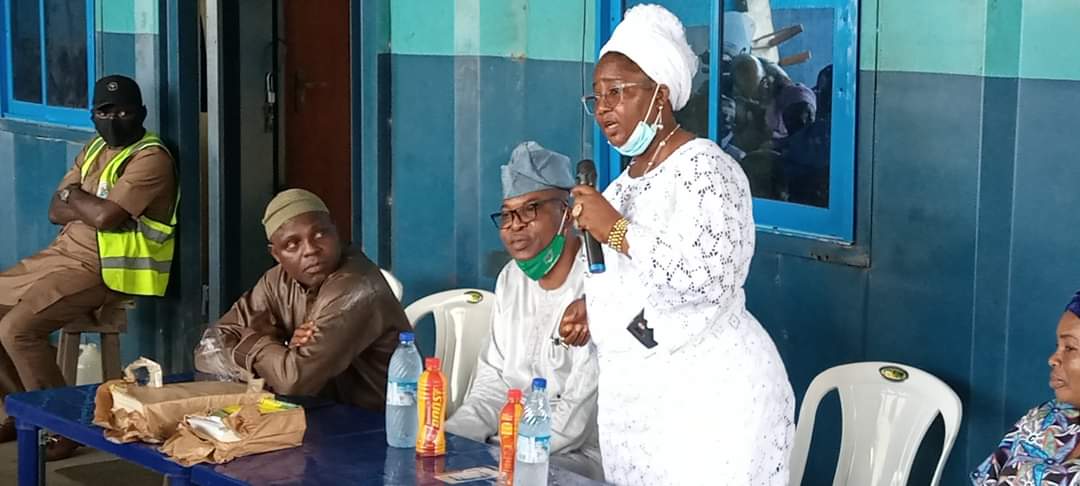All Protocols duly observed.
May Peace, Mercy and Blessings be upon you!
I am highly delighted to launch the Digital Nigeria Portal and Mobile App as part of the implementation our National Digital Economy Policy and Strategy (NDEPS) for a Digital Nigeria. I am also very happy to welcome our partners- the African Development Bank (AfDB) and Microsoft, represented by Ebrima Faal, Senior Director, Nigeria Country Department, AfDB and Ghada Khalifa, Director for Middle East and Africa, Microsoft Philantropies, respectively.
Our journey towards developing Nigeria’s Digital Economy commenced when Mr President approved our request of redesignation of the Federal Ministry of Communications as the Federal Ministry of Communications and Digital Economy, along with an upgrade of the mandate, on the 17th of October 2019. This was then adopted by the Federal Executive Council on the 23rd of October 2019 and the implementation of the revised mandate of the Ministry commenced on the 24th of October 2019.
The development of our National Digital Economy is anchored on the following 8 pillars as stated in NDEPS:
1. Developmental Regulation;
2. Digital Literacy & Skills;
3. Solid Infrastructure;
4. Service Infrastructure;
5. Digital Services Development & Promotion;
6. Soft Infrastructure;
7. Digital Society & Emerging Technologies; and
8. Indigenous Content Development & Adoption.
We have recorded a number of unprecedented achievements since we began implementing NDEPS. A few of these include:
i. resolution of the lingering issues of excessive Right of Way charges and vandalism of telecommunication infrastructure;
ii. rapid broadband penetration, with an increase by about 10% in 11 months (with a value of 42.02% at the end of July 2020), instead of the average annual increase of about 1.7%;
iii. development and swift implementation of the Nigerian National Broadband Plan (NNBP);
iv. significant increase in the contribution of ICT to the GDP based on the Q2 2020 GDP – 17.83% – as reported by the National Bureau of Statistics;
v. promotion of digital services in government, including Virtual Federal Executive Council meetings;
vi. etc
The effect of the digital economy is far greater than the ICT contribution shows. The Digital Economy encompasses ICT and all Digital Services, which includes all online activities in financial institutions, ecommerce, online tax payment, any form of online payment, online banking, etc. When we consider these, the contribution of the Digital Economy could be up to 45% or even more.
Today’s launch is towards the implementation of the Digital Literacy and Skills Pillar #2. It is a follow up to the Mr President’s flagging off of the Digital Nigeria Programme on the 19th of March 2020 to support Digital Innovation and Entrepreneurship Training for Nigerians.
The Digital Nigeria Programme will provide a National Platform for improving the digital literacy of Nigerians and it will enable Nigerians from all walks of life to acquire high level digital skills. It will have a strong emphasis on Skills for Jobs and will include Nigerians in all strata of society, such as youth, women, children, internally displaced persons, people living with disabilities, etc.
We are championing a paradigm shift that lays emphasis on skills, in preference to merely having degrees without skills. Degrees are only meant to validate skills. This is a growing trend across the globe. For instance, China recently started the process of turning 600 of the country’s general universities into skill centres. Also, the President of the United States of America signed an Executive Order on the 26th of June 2020 directing the federal government lay emphasis on skills rather than degrees when hiring staff. The curriculum vitae of today should have 2 main parts- soft skills and hard skills.
The digital literacy and skills pillar recognises the fact that citizens are the greatest assets in any economy, including the digital economy. It will support the development of a large pool of digitally literate and digitally skilled citizens. We recently provided a platform to support the Digital Nigeria program, enabling Nigerians to receive training in diverse digital skills. As part of these efforts, I earlier launched another online academy executed by the National Information Technology Development Agency (NITDA). Over 40,000 Nigerians have enrolled across both platforms since the 2nd of April, 2020.
Today, we are formally launching the www.digitalnigeria.gov.ng portal and the ‘Digital Nigeria’ Mobile App. We are committed to enabling Nigerians acquire high level digital skills from the comfort of their homes.
Some of our objectives for launching these platforms including the following:
i. to empower innovators and entrepreneurs with skills required to thrive in Nigeria’s emerging digital economy;
ii. to provide capacity building in a wide range of areas, including Digital Literacy, Productivity Tools, Web Development, Cloud Computing, Blockchain, Artificial Intelligence, Big Data, Database Administration, Networking, Programming, Internet of Things and Soft Skills;
iii. to create a platform to support a paradigm shift from degrees to skills and bridge the gap between the academia and industry;
iv. to promote the development and distribution of instructional materials in electronic format; and
v. to create an enabling environment for building the capacity of Innovation Driven Enterprises (IDEs) and Micro Small and Medium Enterprises (MSMEs) through e-learning channels.
The National Digital Economy Policy and Strategy emphasizes the importance of partnerships as a key requirement for the successful development of our National Digital Economy. As such, we are very delighted to partner with the African Development Bank and the Microsoft on this very important initiative.
The training content covers areas like Digital Skills, Productivity Tools, Web Development, Cloud Computing, Blockchain, Artificial Intelligence, Big Data, Database Administration, Networking, Programming and Internet of Things. There is also training on soft skills like entrepreneurship, research, marketing, business and how to create excellent resumes. As such, a wide spectrum of users, from beginners to advanced students, can find appropriate courses.
We will regularly update the platform to include more courses from time to time. It will enable us identify skilled Nigerians for additional capacity building opportunities and allow us to easily conduct surveys to identify courses of interest. Students will receive certificate of completion after completing the courses.
Conclusion
The Ministry of Communications and Digital Economy is committed to developing the capacity of Nigerians to use technology to solve problems. We will keep updating the course offerings to reflect global trends. The step by step procedure for using the platforms will be available on our website and social media pages.The Digital Nigeria programme will provide a platform to empower Nigerians to develop relevant skills and build innovative solutions to address challenges within our community. #DigitalNigeria
REMARKS AT THE OFFICIAL LAUNCH OF THE DIGITAL NIGERIA PORTAL AND MOBILE APP BYISA ALI IBRAHIM (PANTAMI), (PhD, FNCS, FBCS, FIIM), HONOURABLE MINISTER, FEDERAL MINISTRY OF COMMUNICATIONS AND DIGITAL ECONOMY, NIGERIA ON MONDAY, 28TH SEPTEMBER 2020.
All Protocols duly observed.
May Peace, Mercy and Blessings be upon you!
I am highly delighted to launch the Digital Nigeria Portal and Mobile App as part of the implementation our National Digital Economy Policy and Strategy (NDEPS) for a Digital Nigeria. I am also very happy to welcome our partners- the African Development Bank (AfDB) and Microsoft, represented by Ebrima Faal, Senior Director, Nigeria Country Department, AfDB and Ghada Khalifa, Director for Middle East and Africa, Microsoft Philantropies, respectively.
Our journey towards developing Nigeria’s Digital Economy commenced when Mr President approved our request of redesignation of the Federal Ministry of Communications as the Federal Ministry of Communications and Digital Economy, along with an upgrade of the mandate, on the 17th of October 2019. This was then adopted by the Federal Executive Council on the 23rd of October 2019 and the implementation of the revised mandate of the Ministry commenced on the 24th of October 2019.
The development of our National Digital Economy is anchored on the following 8 pillars as stated in NDEPS:
1. Developmental Regulation;
2. Digital Literacy & Skills;
3. Solid Infrastructure;
4. Service Infrastructure;
5. Digital Services Development & Promotion;
6. Soft Infrastructure;
7. Digital Society & Emerging Technologies; and
8. Indigenous Content Development & Adoption.
We have recorded a number of unprecedented achievements since we began implementing NDEPS. A few of these include:
i. resolution of the lingering issues of excessive Right of Way charges and vandalism of telecommunication infrastructure;
ii. rapid broadband penetration, with an increase by about 10% in 11 months (with a value of 42.02% at the end of July 2020), instead of the average annual increase of about 1.7%;
iii. development and swift implementation of the Nigerian National Broadband Plan (NNBP);
iv. significant increase in the contribution of ICT to the GDP based on the Q2 2020 GDP – 17.83% – as reported by the National Bureau of Statistics;
v. promotion of digital services in government, including Virtual Federal Executive Council meetings;
vi. etc
The effect of the digital economy is far greater than the ICT contribution shows. The Digital Economy encompasses ICT and all Digital Services, which includes all online activities in financial institutions, ecommerce, online tax payment, any form of online payment, online banking, etc. When we consider these, the contribution of the Digital Economy could be up to 45% or even more.
Today’s launch is towards the implementation of the Digital Literacy and Skills Pillar #2. It is a follow up to the Mr President’s flagging off of the Digital Nigeria Programme on the 19th of March 2020 to support Digital Innovation and Entrepreneurship Training for Nigerians.
The Digital Nigeria Programme will provide a National Platform for improving the digital literacy of Nigerians and it will enable Nigerians from all walks of life to acquire high level digital skills. It will have a strong emphasis on Skills for Jobs and will include Nigerians in all strata of society, such as youth, women, children, internally displaced persons, people living with disabilities, etc.
We are championing a paradigm shift that lays emphasis on skills, in preference to merely having degrees without skills. Degrees are only meant to validate skills. This is a growing trend across the globe. For instance, China recently started the process of turning 600 of the country’s general universities into skill centres. Also, the President of the United States of America signed an Executive Order on the 26th of June 2020 directing the federal government lay emphasis on skills rather than degrees when hiring staff. The curriculum vitae of today should have 2 main parts- soft skills and hard skills.
The digital literacy and skills pillar recognises the fact that citizens are the greatest assets in any economy, including the digital economy. It will support the development of a large pool of digitally literate and digitally skilled citizens. We recently provided a platform to support the Digital Nigeria program, enabling Nigerians to receive training in diverse digital skills. As part of these efforts, I earlier launched another online academy executed by the National Information Technology Development Agency (NITDA). Over 40,000 Nigerians have enrolled across both platforms since the 2nd of April, 2020.
Today, we are formally launching the www.digitalnigeria.gov.ng portal and the ‘Digital Nigeria’ Mobile App. We are committed to enabling Nigerians acquire high level digital skills from the comfort of their homes.
Some of our objectives for launching these platforms including the following:
i. to empower innovators and entrepreneurs with skills required to thrive in Nigeria’s emerging digital economy;
ii. to provide capacity building in a wide range of areas, including Digital Literacy, Productivity Tools, Web Development, Cloud Computing, Blockchain, Artificial Intelligence, Big Data, Database Administration, Networking, Programming, Internet of Things and Soft Skills;
iii. to create a platform to support a paradigm shift from degrees to skills and bridge the gap between the academia and industry;
iv. to promote the development and distribution of instructional materials in electronic format; and
v. to create an enabling environment for building the capacity of Innovation Driven Enterprises (IDEs) and Micro Small and Medium Enterprises (MSMEs) through e-learning channels.
The National Digital Economy Policy and Strategy emphasizes the importance of partnerships as a key requirement for the successful development of our National Digital Economy. As such, we are very delighted to partner with the African Development Bank and the Microsoft on this very important initiative.
The training content covers areas like Digital Skills, Productivity Tools, Web Development, Cloud Computing, Blockchain, Artificial Intelligence, Big Data, Database Administration, Networking, Programming and Internet of Things. There is also training on soft skills like entrepreneurship, research, marketing, business and how to create excellent resumes. As such, a wide spectrum of users, from beginners to advanced students, can find appropriate courses.
We will regularly update the platform to include more courses from time to time. It will enable us identify skilled Nigerians for additional capacity building opportunities and allow us to easily conduct surveys to identify courses of interest. Students will receive certificate of completion after completing the courses.
Conclusion
The Ministry of Communications and Digital Economy is committed to developing the capacity of Nigerians to use technology to solve problems. We will keep updating the course offerings to reflect global trends. The step by step procedure for using the platforms will be available on our website and social media pages.The Digital Nigeria programme will provide a platform to empower Nigerians to develop relevant skills and build innovative solutions to address challenges within our community. #DigitalNigeria

